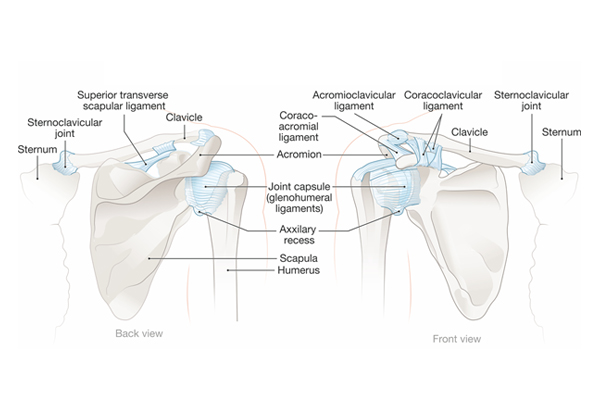Understanding Shoulder Instability and Stabilization Surgery
Overview
What is shoulder instability?
Your shoulder is the most mobile joint in your body, allowing for a wide range of motion. However, this mobility also makes it more prone to instability and dislocation, which can be caused by:
- Injury: This can be a direct blow to the shoulder, falling on an outstretched arm, or lifting something very heavy.
- Underlying conditions:Hypermobility (increased joint laxity) or certain bone shapes can contribute to instability.
When is surgery needed?
Surgery might be recommended if:
- You experience frequent dislocations, even with minor injuries.
- Physiotherapy hasn’t been successful in preventing further dislocations.
- You have significant pain and weakness that significantly impact your daily life.
Benefits of Shoulder Stabilization Surgery
- Prevents future dislocations: This is the main goal of surgery, allowing you to move your shoulder freely without worry.
- Reduces pain: By stabilizing the joint, the surgery can significantly improve shoulder pain.
- Improves function: With increased stability, you can regain full use of your shoulder and participate in activities without limitations.
What to expect during surgery
- Arthroscopic procedure: In most cases, surgery is performed using arthroscopy, a minimally invasive technique using a small camera inserted into the shoulder joint.
- Repairing the damage: The surgeon identifies and repairs damaged tissues and ligaments using special instruments guided by the camera.
- Day case procedure: Shoulder stabilization surgery is often performed as an outpatient procedure, meaning you can go home the same day.
Recovery after surgery
- Sling: Your arm will be immobilized in a sling for 2-3 weeks to protect the repair and promote healing.
- Physical therapy: After the initial healing period, physical therapy is crucial to regain strength and movement in your shoulder.
- Recovery time: It takes several months to fully recover and regain full function in your shoulder.
Alternatives to surgery
While surgery is an effective option, your doctor might recommend trying physiotherapy first to strengthen the shoulder and improve stability. However, surgery might be necessary if physiotherapy doesn’t achieve the desired results.
Remember
Consulting with your doctor is crucial to understand if shoulder stabilization surgery is right for you. They can discuss your specific situation, answer your questions, and guide you through the entire process.

